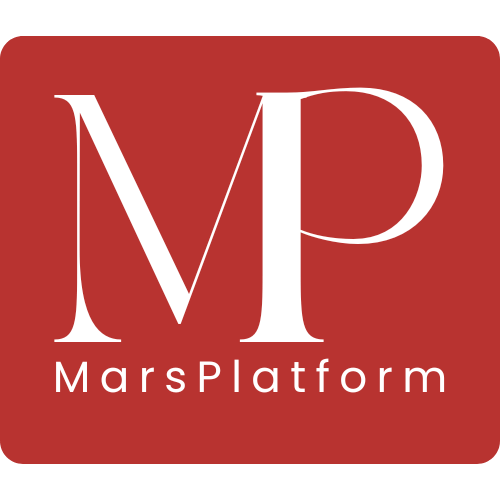Grant Proposal Writing
Grant Proposal Writing
“Mars Platform leverages Mars AI to provide accessible, tailored educational materials.”
Grant Proposal Writing: Assisting in the creation of grant proposals.
Welcome to the art of Grant Proposal Writing, a critical skill for nonprofits, researchers, and organizations seeking funding to support their projects and initiatives. This guide provides a structured approach to crafting compelling grant proposals, featuring 50 prompts designed to help you articulate every aspect of your project in a clear, organized, and persuasive manner.
Whether you’re seeking funding for community service, scientific research, or educational programs, these prompts are tailored to guide you through the essential components of a successful grant application.
Explanation of the Content
Grant proposal writing involves detailing your project in a way that convincingly demonstrates its worthiness for funding. Each component of the proposal serves a specific purpose: from stating the need for your project to outlining its goals, from detailing the methodology to presenting a robust budget plan. These prompts guide you through the process of developing a comprehensive and persuasive grant proposal that addresses all the criteria funders typically look for:
1. Defining the Need: Clearly articulate the problem or need your project intends to address. This establishes the foundation for the entire proposal.
2. Project Objectives: Outline what your project aims to achieve. Objectives should be specific, measurable, attainable, relevant, and time-bound (SMART).
3. Alignment with the Funder’s Mission: Demonstrate how your project aligns with the grantor’s goals and values. This increases your proposal’s relevance to the potential funder.
4. Methodology: Describe the methods you will use to achieve the project objectives. This section should reassure funders that the project is feasible and well-planned.
5. Budget Details: Provide a detailed budget that accounts for all expenses. Transparency here builds trust and shows that you can manage funds efficiently.
6. Evaluation Strategies: Explain how you will measure the project’s success and impact. This shows accountability and commitment to achieving results.
7. Sustainability: Discuss how the project will continue after the grant period or how its impacts will be sustained over time.
8. Team Qualifications: Highlight the expertise and experience of your project team. This builds credibility and assures funders that the project is in capable hands.
Suggested Ideas for Implementing Grant Proposal Writing Prompts
1. Workshops and Training: Conduct workshops to train your team on the essentials of grant writing using these prompts as a curriculum outline.
2. Collaborative Drafting: Use these prompts in brainstorming sessions to gather input from different team members, ensuring a comprehensive and multifaceted proposal.
3. Peer Reviews: Organize peer review sessions where team members critique each other’s sections of the proposal, providing feedback based on the prompts.
4. Mock Evaluations: Simulate a grant review process where you evaluate your proposal based on these prompts to identify strengths and areas for improvement.
5. Iterative Refinement: Use the prompts to refine and iterate on your proposal drafts, focusing on clarity, impact, and completeness with each revision.
6. Documentation and Record Keeping: Keep detailed records of how each prompt was addressed in the proposal to streamline future applications and ensure consistency.
7. Funder Research: Tailor responses to these prompts based on specific insights into the funder’s priorities and previous grants, aligning your proposal closely with the funder’s known interests.
By systematically addressing each prompt, you can craft a grant proposal that not only meets the funding criteria but also stands out for its clarity, thoroughness, and compelling narrative. This structured approach ensures that you effectively communicate the significance and feasibility of your project, maximizing your chances of securing the needed funding.
These prompts can serve as a comprehensive guide to structuring and elaborating on the various elements of a grant proposal.
50 prompts designed to assist in the creation of grant proposals, focusing on various aspects such as outlining the need, defining objectives, describing methodology, budget planning, and more.
These prompts can guide you through the process of developing a comprehensive and persuasive grant proposal:
1. Outline the primary objective of your grant proposal.
2. Describe the specific problem or need your project addresses.
3. Explain how your project aligns with the grantor’s mission and objectives.
4. Detail the target population or community that will benefit from the project.
5. Identify the key outcomes you aim to achieve with this project.
6. Summarize your project’s approach and methodology.
7. Explain the rationale behind choosing this particular approach.
8. Describe your project timeline and major milestones.
9. Outline the qualifications and experience of the project team.
10. Highlight any previous successful projects or relevant experience.
11. Explain how you will evaluate the success of the project.
12. Detail the sustainability plan for the project post-grant period.
13. Describe the long-term impact and benefits of the project.
14. Explain how the project contributes to knowledge or best practices in your field.
15. Identify potential challenges and your strategies to mitigate them.
16. Detail the budget requirements, including breakdowns of expenses.
17. Explain how the funds will be allocated and managed.
18. Describe any additional funding sources or in-kind contributions.
19. Justify the cost-effectiveness of the project.
20. Explain the significance of the project in the current context.
21. Describe any partnerships or collaborations involved in the project.
22. Outline the communication strategy for the project’s progress and results.
23. Highlight how the project aligns with current trends or advancements in your field.
24. Explain the scalability or potential for replication of the project.
25. Detail any innovative aspects or novel approaches in your project.
26. Describe the project’s contribution to community development or social change.
27. Explain the environmental impact of your project, if applicable.
28. Detail how you will engage with stakeholders and the community.
29. Outline the risk management plan for the project.
30. Highlight any endorsements or support from industry experts or community leaders.
31. Explain the capacity-building elements of the project.
32. Describe the project’s alignment with policy priorities or regulatory frameworks.
33. Detail any technological requirements or innovations in your project.
34. Outline the methods for data collection and analysis in your project.
35. Explain the ethical considerations and how they will be addressed.
36. Describe the project’s potential for future growth or expansion.
37. Explain how the project addresses equity and inclusivity.
38. Detail any educational or training components of the project.
39. Highlight the project’s potential for generating new insights or discoveries.
40. Explain how the project will be documented and reported.
41. Describe the legacy or lasting impact of the project.
42. “Explain how the project supports or enhances your organization’s overall mission.
43. Detail the strategies for community or stakeholder engagement.
44. Outline any plans for publications, presentations, or sharing of project results.
45. Explain how the project complements or builds upon existing work in the field.
46. Describe the opportunities for volunteer involvement in the project.
47. Detail how the project will be marketed or promoted.
48. Explain the plan for building capacity or resources for project sustainability.
49. Describe any unique features or aspects of the project setting or population.
50. Explain how the project will foster collaborations or partnerships beyond the grant period.

